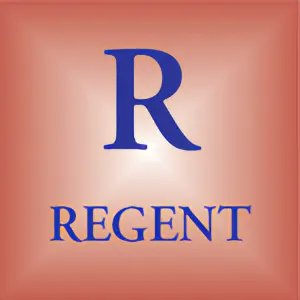I am often asked by clients about the relative benefits of the IB (International Baccalaureate) program compared to the local curriculum offerings. Many have little or no idea about the IB or even what the letters stand for! There is also a perception that it isn’t overly relevant for their children in Australia or that its only benefit is that it will help their child gain entry to an overseas university. I had an Australian educator say to me recently that the IB is “just marketing” for schools to increase their enrolments and really is of little or no other educational value. So what is the reality?
In the past few years I have been dealing with numerous international clients (mainly in Asia) and more recently I consulted to an international school in HK where I met many parents. These experiences have opened my eyes to the world of IB, its benefits and how highly regarded it is on an international stage and how insulated we are to both what the program is and its benefits. So what exactly is it? How popular is it both in Australia and worldwide? It is something I should be considering for my child?
The IB is a global curriculum and associated assessment process that presents itself as an alternative to local offerings. It is in three stages Primary Years Program (PYP) ages 3-12, Middle Years Program (MYP) ages 11-16 and the Diploma ages 16-19. There are 3485 schools in 143 countries offering one or more of the programs. In Australia, we have 149 IB schools broken down into 83 offering the PYP, 43 offering the MYP and 63 offering the diploma (obviously some offer more than one). Interestingly, in Victoria and NSW there are only four (two each) offering the full IB program in 2013 but 15 schools in each state offering the diploma. So, as you can see, it is more widespread than most would have thought.
What are the differences between IB and local offerings? Well, essentially the IB is enquiry based learning, broader and the stated aim is “to develop internationally minded people who, recognizing their common humanity and shared guardianship of the planet, help to create a better and more peaceful world”. IB learners strive to be : enquirers, knowledgeable, thinkers, communicators, principled, open-minded, caring, risk takers, balanced and reflective. They often use thematic/interdisciplinary learning and build the various disciplines around a theme and intertwine various subjects, particularly in the PYP years.
The Diploma (Years 11/12) is probably the best known program in Australia and it has several very appealing features. Firstly, each student has to take a subject from each discipline area (ie maths, language, science etc) so it results in a very well rounded program. Two other distinguishing features are the Extended Essay and the study of the Theory of Knowledge.
The extended essay is an independent, self directed piece of research culminating in a 4000 word paper, very much in the mould of what they may be required to undertake at University level. The Theory of Knowledge intends to give students a broader understanding of the interactions between their different school subjects as well as creating greater open-mindedness among students. It is based on a system of Ways of Knowing and Areas of Knowledge, each of which is discussed in detail.
So, as you can see from the brief overview, there is more to the IB than simply giving students an internationally recognised qualification. It does, in my view, provide an excellent springboard for University type independent learning ( which a lot of young people struggle with!) and it also opens up nearly every possible option as students aren’t doing a particular stream (ie maths/science) of subjects. In Australia, the Diploma will usually be undertaken by approximately 20-30% of the cohort in a year level, so there tends to be quite small class sizes. The content is more advanced and, due to the students having to undertake maths and a language, it does tend to attract the more capable students.
It is interesting to note, in Victoria, we currently have 16 schools (soon to be 15) offering the IB diploma but not one single-sex boys school offers the program. Our international clients are aghast at this and struggle to understand why some of the most prestigious schools in the country don’t offer this highly regarded, internationally recognised course. It is also interesting to note that in Melbourne we have 50 schools with fees in excess of 15k per year but only 7 of these are single-sex boys schools. Most are very, very full and therefore one could argue have very little incentive to change their curriculum offerings if there are long queues to get into the school. On the other hand, girls and co-educational schools are in a very competitive market and are far more open to anything that will potentially give them a competitive advantage and, it could be argued, are more cutting edge in their thinking as a result.
So if your child fits the academic profile (ie will be proficient in a language and maths) then in many respects the IB diploma is well worth considering in my view. Thanks to technology, we are increasingly living in a world with very few geographical boundaries and any program that is international in its focus would be seen as a positive.
